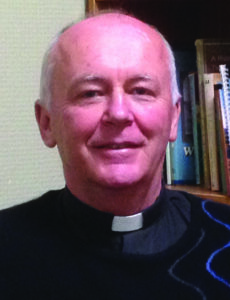The Interior Castle of St Teresa of Jesus of Ávila
Part 3 of 7
The Third Mansion
St Teresa wrote two chapters on the Third Mansion, and the first three Mansions take up only 30% of the Interior Castle. This section marks the end of the ascetical effort, our work to change ourselves. From the Fourth Mansion onwards, God will be more prominent.
 First, it is important to note that there are still another four Mansions to come, because someone in this Third Mansion might think that they have arrived at the destination of holiness -- that this is all God gives and we can give. How far from the truth! So, the Gospel passage to ponder is that of the rich young man afraid to give all (Matthew 19:16-22). A person in the Third Mansion is a good and faithful disciple of Jesus. But the illusion is that holiness is for a few in the Church -- not for the ordinary Christian.
First, it is important to note that there are still another four Mansions to come, because someone in this Third Mansion might think that they have arrived at the destination of holiness -- that this is all God gives and we can give. How far from the truth! So, the Gospel passage to ponder is that of the rich young man afraid to give all (Matthew 19:16-22). A person in the Third Mansion is a good and faithful disciple of Jesus. But the illusion is that holiness is for a few in the Church -- not for the ordinary Christian.
In the Constitution on the Church, Lumen Gentium, Vatican II reminded the Church of the universal call to holiness; all are called to be God’s property. Also, a saint like St Thérèse of the Child Jesus reminds us that holiness is not a matter of great deeds, but rather of small deeds done with great love, able to be done by everyone.
Perhaps at the heart of the misunderstanding of the Third Mansion is confusing our efforts with God. God wants to do more in us. God wants to open his heart to us. How wonderful. Hence, never cease longing for the sheer gift of contemplative prayer in the Fourth and following Mansions. Often pray, “Sir, give us that living water” (John 4:15).
So, in the Third Mansion, disciples have a well-organised devotional life. They are earnest in their desire to belong to God. They are in the prayer of recollection. Prayer is more simple and peaceful.
However, there will be ups and downs and they keep going and return to the Lord again and again. They have overcome their initial indecision -- “They are most desirous to not offend his Majesty.” Unlike in the Second Mansion, they do not wish ever to sin.They seek to avoid even venial sin. They love doing penance and use their time well. They spend their time in prayer, practise works of charity, are careful in their speech and in how they dress. There has been much growth since the First Mansion. But St Teresa writes: “These practices are all good, but not a sufficient reason, as I have said, for us to stop fearing.” What sort of fear? A reverent fear that we can lose God because of our foolishness, our human instability.
 What is wrong with those in the Third Mansion? They are moving at a snail’s pace, not running in the Way! Holiness and the good life are not the same thing. God’s desires and our desires are not the same thing. That is worth pondering on. Those in the Third Mansion build up their own security and lack trust in God. They are too careful about their own comfort. There is too much self-seeking and self-indulgence.
What is wrong with those in the Third Mansion? They are moving at a snail’s pace, not running in the Way! Holiness and the good life are not the same thing. God’s desires and our desires are not the same thing. That is worth pondering on. Those in the Third Mansion build up their own security and lack trust in God. They are too careful about their own comfort. There is too much self-seeking and self-indulgence.
As a wise child is dependent on its parents, so we must trust in God, not in ourselves. St Teresa writes that there is no real security in this life. There is also blindness to vices in this life – religious vices, well disguised.
Many people are attached to their reputation. Nothing extreme or very generous will ever be part of their lives. There is no full surrender of their will to God. It is life on their terms, not God’s. They are governed by reason, not love.
But a great reward necessitates a greater love. The spiritual life is not about consolations but about love for God and neighbour. So, God may permit long periods of dryness and aridity in prayer to test his friends and help them mature. This is not always to people’s liking. Hurt self-love is always a danger and a trap. Beware of becoming a self-proclaimed martyr because of the inevitable difficulties of following Jesus. The evil one likes to change into an angel of light.
However, this time of aridity may lead them to be more humble and repentant. They may come to see their attachments to earthly things and the folly of trusting in the world.
So persons in the Third Mansion must
1] Have an active focus on the divine indwelling, God within us. Listen attentively to the divine call. In prayer, seek to be still and look at God with love. Have a holy fear of God. God is in charge, not me!
2] Have humility. Draw lessons from all of life’s difficulties. See the hand of God behind them. Leave behind the ego-drama and accept the Theo-drama. Do not let the devil make you restless. Reflect often on how little you have travelled instead of basking in your virtues. Put to death the illusion you have arrived at holiness.
3] Persevere. Do not give up. St Teresa writes, “persevere in this nakedness and abandonment of all things.” Perfection does not consist in sweetness.
 4] Never worry about dryness in prayer. We go to pray for God, not for our own consolation. Never seek spiritual joys in prayer. This is not a sign of perfection. Prayer, as St Teresa keeps telling us, is primarily about loving God, not about speaking to or thinking about him.
4] Never worry about dryness in prayer. We go to pray for God, not for our own consolation. Never seek spiritual joys in prayer. This is not a sign of perfection. Prayer, as St Teresa keeps telling us, is primarily about loving God, not about speaking to or thinking about him.


 Entries(RSS)
Entries(RSS)